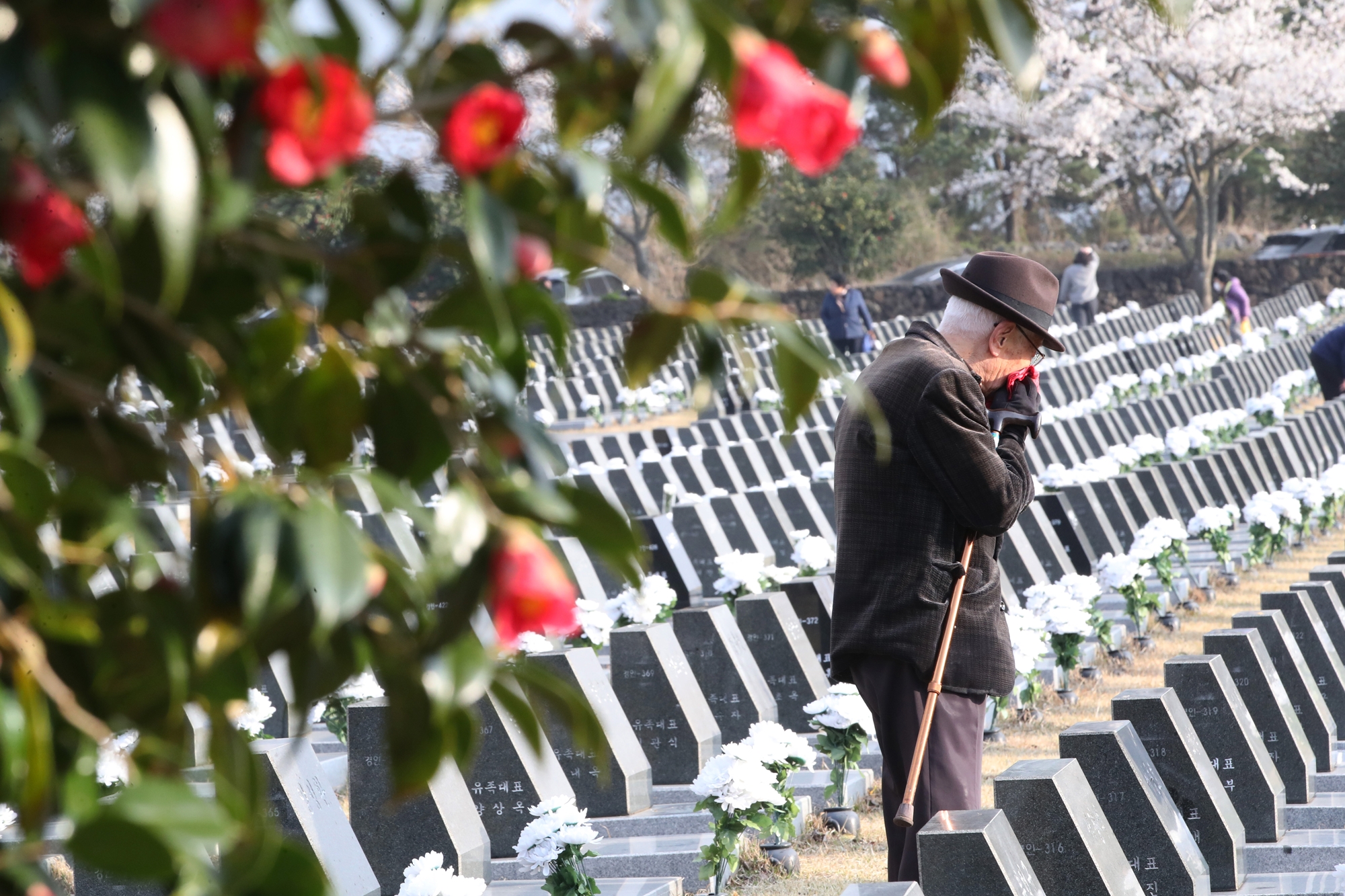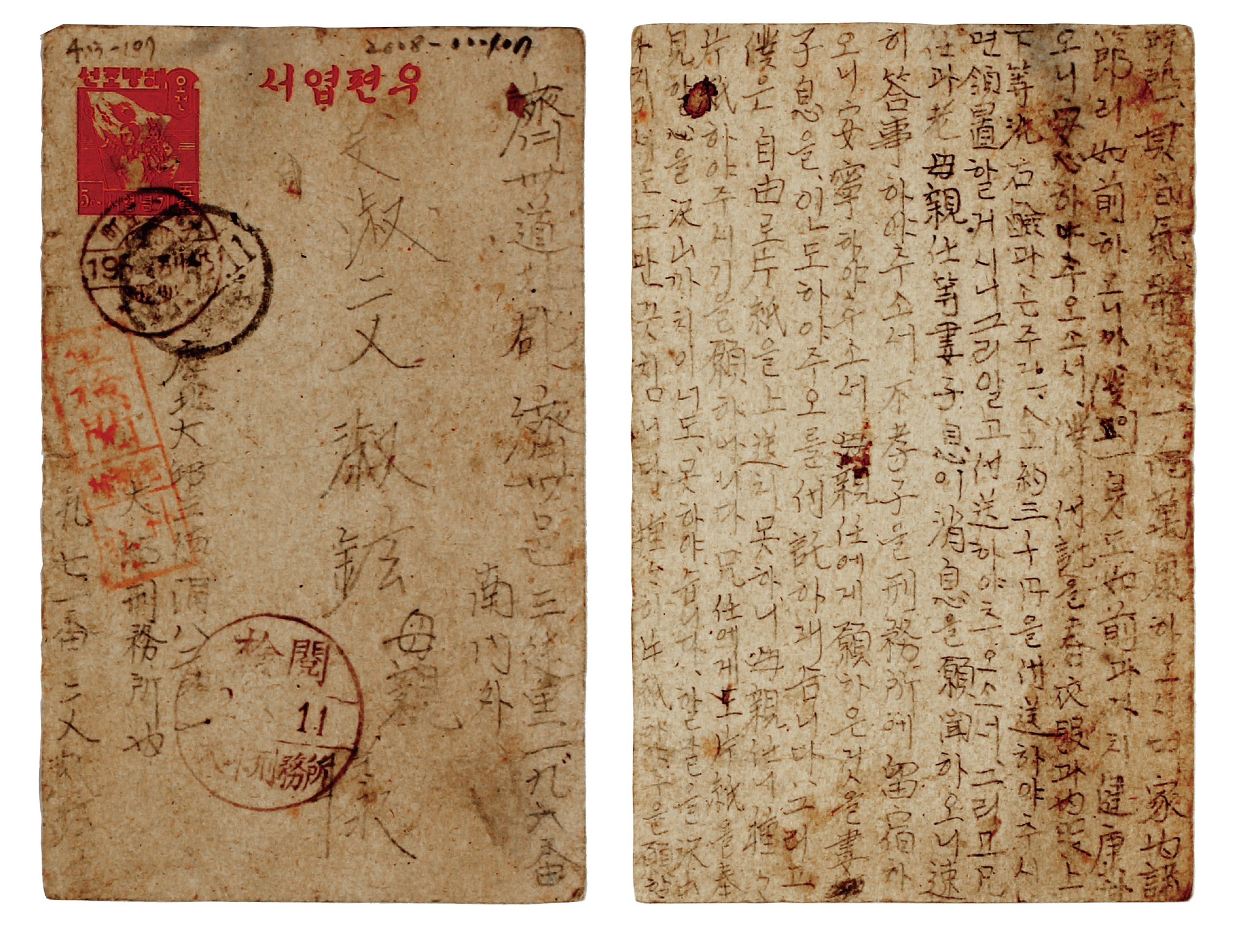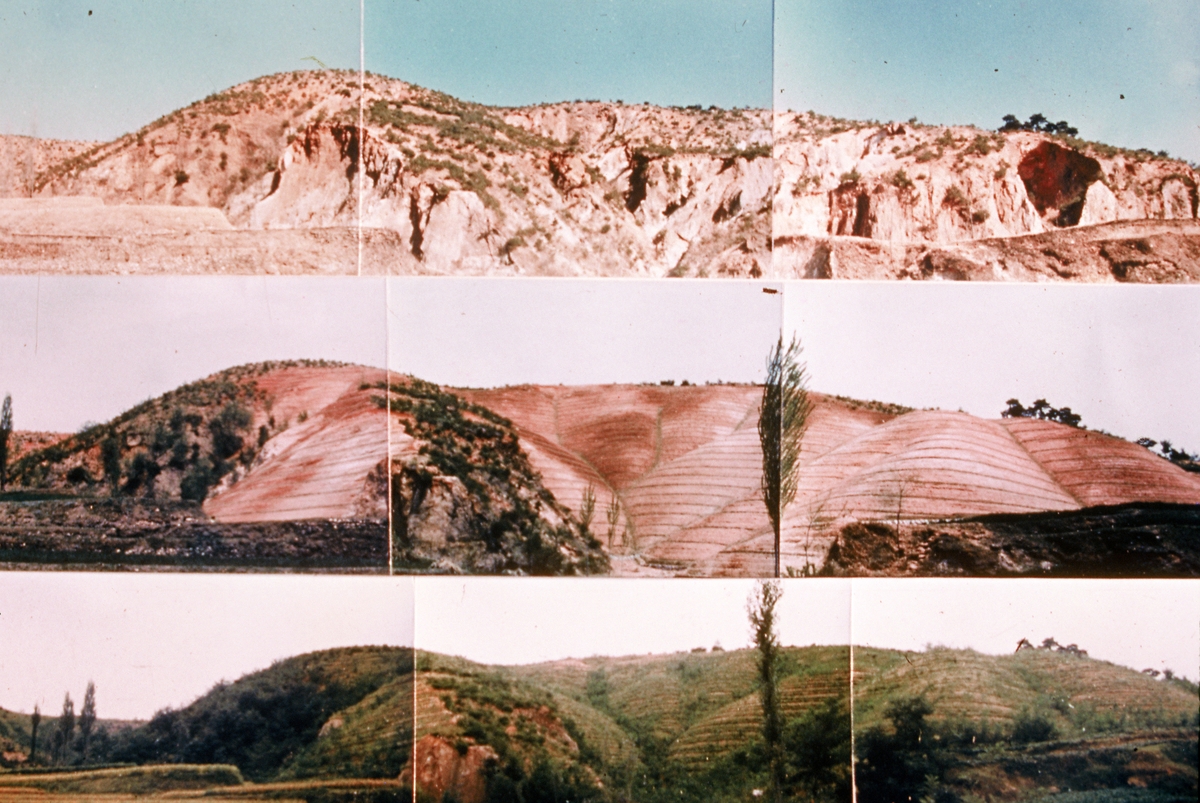
Records on the 1948-49 uprising on Jeju Island and national reforestation after the Korean War on April 10 were inscribed on UNESCO's Memory of the World Register at the global body's executive board meeting in Paris. Shown are the relatives of people who went missing during the incident on April 3 at Jeju 4.3 Peace Park in the island's Jeju City on the 77th anniversary of the uprising's launch. (Yonhap News)
By Xu Aiying
UNESCO has registered on its Memory of the World Register records on the 1948-49 uprising on Jeju Island and the country's reforestation after the Korean War.
The Korea Heritage Service on April 10 said UNESCO's executive board in Paris gave final approval to include both sets of records on the global body's Memory of the World Register.

A postcard from prison is among the records of the Jeju uprising now included on UNESCO's Memory of the World Register. (Korea Heritage Service)
The records on the uprising comprise victims' statements and documents on the truth-finding and reconciliation process of the civilian massacres. The 14,673 pieces include a list of prisoners sentenced by the military court and postcards from prison (27), testimonies by victims and their relatives (14,601), records of civil efforts to find the truth behind the incident (42) and official reports of government investigations (three).
UNESCO recognition of the records is hoped to raise awareness of the importance of human rights in world history, as well as suggest new ways to resolve painful instances of the past under the spirit of reconciliation and coexistence shown by Jeju natives.

These photos show the restoration of trees in the Yeongilman Bay area of Pohang, Gyeongsangnam-do Province, from 1973-77 as part of reforestation records inscribed on UNESCO's Memory of the World Register. (Korea Heritage Service)
The UNESCO-inscribed records of national reforestation display Korea's efforts to restore its forests during reconstruction after the Korean War through public-private cooperation. They are considered exemplary cases that other developing countries can refer to as well as examples for guidance on international issues such as response to climate change and prevention of desertification.
Both sets of records raise Korea's total on the UNESCO register to 20. Jeju also has five UNESCO designations: Biosphere Reserve, World Natural Heritage, Global Geopark, Intangible Cultural Heritage and Memory of the World.
In addition, an exhibition in Paris of the Jeju records' designation was opened on April 9 at Korean House of CIUP (City International University of Paris). The event ends on April 15.
xuaiy@korea.kr